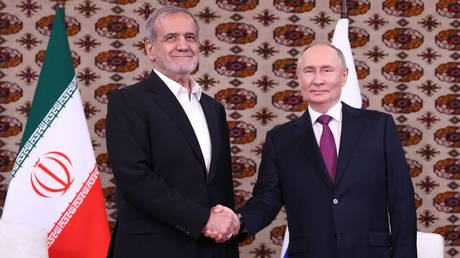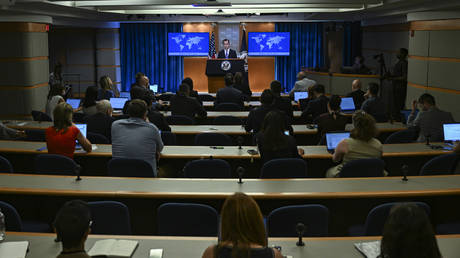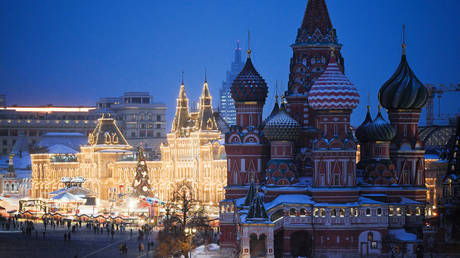"While Russia may pose the most immediate challenge, China is the bigger long-term threat,” CIA director William J. Burns wrote in an op-ed for Foreign Affairs.
Grigory Sysoyev/POOL/AFP via Getty Images
China has helped Russia and Iran sidestep Western sanctions on their oil exports, says the think tank Atlantic Council.
The two nations sell their oil to China’s pint-sized refineries, funneling funds into local Chinese banks while appearing as foreign vessels.
Critics say that China aids Russia solely to protect its own interests.
Russia and Iran’s successful workarounds of the West’s sanctions on their oil exports largely hinge on the contributions of China, economic think tank the Atlantic Council wrote in a new report.
As the two countries face escalating sanctions from the US-led alliance, Beijing has created an alternative market for their restricted oil. Traded in Chinese renminbi, the market opens doors for their crude-loaded “dark fleet” tankers that dodge the international maritime rules with covert maneuvers, the Atlantic Council said.
“Oil revenue from China is propping up the Iranian and Russian economies and is undermining Western sanctions,” analysts Kimberly Donovan and Maia Nikoladze wrote in a note on Thursday.
“Meanwhile, the use of Chinese currency and payment systems in this market restricts Western jurisdictions’ access to financial transactions data and weakens their sanctions enforcement efforts.”
To avoid detection, Iranian fleet tankers often stealthily sail without transponders, and pass themselves off as Malaysian or Middle Eastern oil once they arrive in China.
The buyers are also dubbed “teapots,” which refers to small, independent refineries in China. They have clandestinely accepted 90% of Iran’s total oil exports, while Chinese state-owned refiners shunned Iran due to fears of sanctions, the think tank said.
“Teapots are believed to be paying Iran in renminbi using smaller US-sanctioned financial institutions like the Bank of Kunlun. This strategy allows China to avoid exposing its large international banks to the risk of US financial sanctions,” the note said, adding that Iran can either splurge on Chinese goods or stash cash in a Chinese bank upon receiving yuan.
The Atlantic Council also says Russia is taking a page from Iran’s playbook. The Kremlin’s “shadow fleet” sails to the world’s second-largest economy while importing tech from them. Moscow’s Renminbi trading has also surged post-G7’s oil export price cap.
However, the analysts pointed out that China’s aid to Russia is only within the bounds of safeguarding its own interests, as evidenced by three out of four Chinese banks halting payments from sanctioned Russian firms following the US introducing new secondary sanctions in December 2023.
“While secondary sanctions did not directly target oil payments from China, this shows that if the West were to threaten to sanction large Chinese companies for importing Russian oil above the price cap, Beijing would likely comply,” analysts added.





+ There are no comments
Add yours